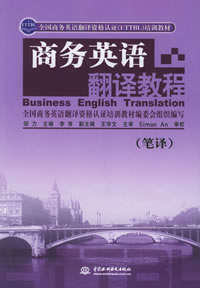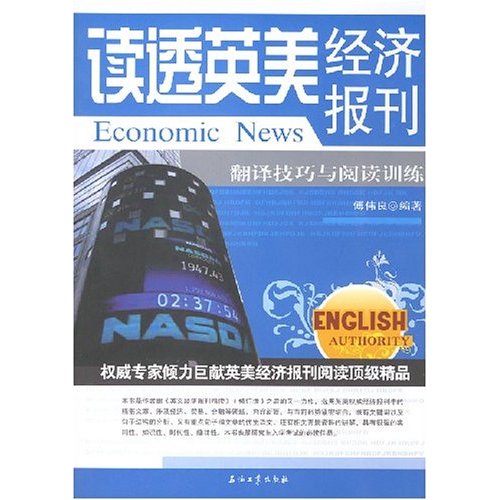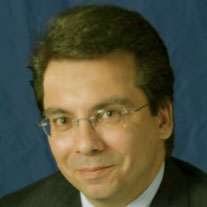The Challenge of Translating Chinese Medicine
作者:古龙 2009-07-04




语际翻译公司 转载请注明https://www.scientrans.com
∗本栏目部分文章内容来自互联网,部分已经过本站编辑和整理,如有版权事宜请联系Email/MSN jesczhao@hotmail.com
Q. What do you mean by transparent?
A. By transparent and opaque mean how much we really understand of the meaning and structure of our own language. I once overheard a nine year old Italian boy make the following comment as his elder brother urinated in a gutter Ma, che inondazione! That is transparent—a nine year-old Italian can know the word inondazione, because it is meaningfully related to onda, wave. Virtually no nine-year old English speakers will know the word "inundation" because it is a latin book word in our language. The equivalent anglicism, if it existed, would be something like infloodment, or even infloodscape. Chinese words are transparent in this way, at least when read and often when spoken as well. Thus, the Chinese phrase for adrenal gland is shenshangxian, kidney-atop-gland, quite similar to the Latin ad renem, and hence means a lot more to the Chinese than even the phrase "adrenal gland" does to most of us. All of western medical terminology is translated into Chinese this way—what it loses in terms of "pure abstract conceptualizing" it gains in everyday understanding. Which is preferable?
Q. Can you give some more examples?
A. Take the two bones in our lower arm. The only names we have for them today are ulna and radius. These are the "scientific names," the ones medical people—and few others—learn. Those bones are important to you every day, yet you have no everyday way of referring to them at all. But there is clear evidence from historical linguistics that these bones once had other names. The ulna was once called the "el", the radius possible something like the "spoke." We know about the "el" from Seventeenth Century poetry (maid to lover: "if I give you an inch, you'll soon take an el") but also from modern German, where the words are die Elle and die Speiche.
Even in modern English the place where the "el" makes a bend or "bow" (sich beugt) is called the elbow. In Chinese these words translate as foot-measure bone (close to the meaning of "el") and rowing bone. All bones and all locations in the body have similar down-to-earth names in Chinese. Which people are likely to be on better terms with their bodies—one that has names such as these or one where everything is linguistically off-limits except to doctors? German continues to a better job here even today with such words as Gehirnhautentzündung and Harnröhre for meningitis and urethra.
Q. It also occurs to me that a German child could understand words like Riss und Wuetschwunder, whereas an English-speaking child would not understand "lacerations and contusions." Could you say something more about the four-character constructions?
A. That's at the very heart of the way the Chinese systematize and store their knowledge. They like to sum up a whole subject in just four characters, four syllables long, which they then use as a mnemonic. Dah-dah-dah-dah—it's like half of Big Ben ringing. If it's a truly difficult concept then they will occasionally go for eight syllables, or full Big Ben. It's very close to being like a computer macro, a brief series of keystrokes to stand for something much longer. And they can, if need be, even macro-ize the four character phrase down to two characters—or even one. We have a few such structures even in English. Here's one: Spring Ahead Fall Behind. It sums up a specific procedure Americans go through twice each year when they change from Standard Time to Day-light Savings Time and tells them which way to move the clock's hands. It's a fairly good example of Chinese-like thinking in English.
Here's another: Blows Strokes Sweep Breaths. I've left out the punctuation because there wouldn't be any in Chinese. There wouldn't even be an 's' marking three of the words, because the Chinese don't usually record the plural in nouns and verbs. So let's try
Blow Stroke Sweep Breath.
How would you translate that into another language? Would you imagine it as something poetic and inspiring, such as "The vast wind beats on my heart, sweeping my breath away?" Or is it a tale or oarsmen being swept away while pursuing a whale? Or could it be something overtly sexual? these are the sort of errors awaiting anyone trying to translate medical Chinese—and some have fallen into such traps.
The precise meaning of the phrase Blows, Strokes, Sweep, Breaths refers to a medical context in American English: it is a mnemonic for remembering the correct order of actions in dealing with an unconscious non-breathing patient and is taught in courses on cardio-pulmonary resuscitation: blows on the back, artificial respiration, clearing the patient's air channel with one's fingers, and the "kiss of life."
- 评论
- seme:文章内容文章内容文章内容文章内容文章内容文章内容文章内容文章内容文章内容 章内容文章内容文章内容文章内容文章内容
- seme:文章内容文章内容文章内容文章内容文章内容文章内容文章内容文章内容文章内容 章内容文章内容文章内容文章内容文章内容

- 针灸汉英翻译技巧探析
2009-5-29 12:09:05 - 针灸学是中医学中的重要组成部分 ,是中华医学宝贵的遗产之一。针灸学是以中医学理论为指导,运用针刺和艾灸防病治病的一门临床学科。目前,针灸已传播到 140多个国家和地区,已成为...
- The Challenge of Translating Chinese M…
2009-6-9 18:14:09 - Q. How does one get into something as recherché and specialized as translating Chinese medical texts?A. I suppose its what our col...
- 第四届IEEE生物信息与生…
2009-6-30 19:42:01 - 基本信息 主办单位: 四川大学,IEEE生物医学工程协会(EMBS) 承办单位 开始日期 2010/06/18 结束日期 截稿日期 2009/1...
- 第九届全国光电技术学术…
2009-6-30 19:35:58 - 基本信息主办单位: 中国宇航学会光电技术专业委员会承办单位 开始日期 2009/11/01结束日期 截稿日期 2009...
















